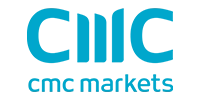Table Of Contents
- Best Islamic FOREX Brokers for 2026
- Best Islamic FOREX Brokers in 2026
- The Foundations of Islamic Trading
- Is FOREX Trading Allowed for Islamic Traders?
- What Is an Islamic FOREX Account?
- How to Open an Islamic FOREX Account
- What Is a Swap Fee?
- Regulation and Licensing of Shariah-Compliant Brokers
- Which Regulations Guide the Use of Leverage in Islam?
- What are Competitive Commissions and Fees at the Best Islamic Brokers?
- Withdrawal and Deposit Fees Comparison Table
- What Assets and Instruments Do Islamic FOREX Brokers Offer?
- What Trading Platforms, Tools and Features Should Islamic Broker Offer?
- How Do Stop Outs Affect You As a Trader?
- Important Matters to Note as an Islamic Trader
- How to Select the Best Islamic Brokers 2026
- Conclusion
How to Choose the Best Islamic FOREX Broker: Explained
With many years of meticulous FOREX broker testing, Arincen stands out as a voice of authority. Our analyses, shaped by exhaustive data collection, are trusted by many. Each year, we gather 120 data points from more than 100 brokers. Our team of more than 20 people collaborate extensively to produce high-quality broker reviews like this one. For a detailed explanation of how we test brokers, navigate to the bottom of this article.
Note: We earn money by selling ads, placements, or through partnerships with some companies we have agreements with, learn more.
Selecting an Islamic broker is not very different from choosing a regular broker. The basics remain the same – you need a broker that is well-established, well-capitalized and has worked hard to give you a good range of market-leading features. Only after you are satisfied with those elements should you turn your attention to what sets Islamic brokers apart.
Islamic trading has many similarities to regular trading, but also some key differences. To begin, it is especially important for traders practicing the Islamic faith to trade in a way that is consistent with the teachings of the Holy Quran. It is, quite simply, a deal breaker for Muslim traders to have access to trading conditions that are compliant with what is known as Shariah finance.
In this article, we will cover the most crucial elements of Islamic trading, and we will point you toward the types of features that set Islamic brokers apart from each other. It is crucial to note that while we offer you commonly accepted interpretations of Shariah finance, we do not claim to be the final authority on these matters. If you still have doubts, you are advised to seek counsel from religious experts.
Best Islamic FOREX Brokers for 2026
| Company Name | Regulations | Minimum Deposit | Main Branch | |
|---|---|---|---|---|

ICM capital |
FCA | $200 | London | |

Tradeview |
SCA | $0 | New York, United States of America | |
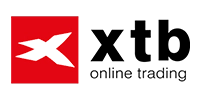
XTB |
FCA | 0$ | United Kingdom | |

IG Group |
FCA | $250 | United Kingdom |

| Company Name | ICM capital |
| Regulations | FCA |
| Minimum Deposit | $200 |
| Main Branch | London |

| Company Name | Tradeview |
| Regulations | SCA |
| Minimum Deposit | $0 |
| Main Branch | New York, United States of America |

| Company Name | XTB |
| Regulations | FCA |
| Minimum Deposit | 0$ |
| Main Branch | United Kingdom |

| Company Name | IG Group |
| Regulations | FCA |
| Minimum Deposit | $250 |
| Main Branch | United Kingdom |
Best Islamic FOREX Brokers in 2026

ICM capital
ICM Capital is a UK-origin broker that operates worldwide. The firm provides access to diverse trading products, including FOREX, commodities, futures, and indices. ICM offers a secure and efficient trading environment by combining advanced technology with deep liquidity. The company prides itself on delivering high liquidity, tight spreads, mobile trading, and advanced technical analysis.
Why we picked ICM Capital
For its robust regulatory framework and global oversight. Its presence across multiple jurisdictions demonstrates a genuine commitment to investor protection. This foundation makes it a dependable choice for both new and seasoned traders.
| Broker Evaluation | 9.11 |
| Regulations | FCA |
| Minimum Deposit | $200 |
| Islamic Account | yes |
| Payment Methods | Bank transfer, credit card, Electronic Banks, Crypto |
| Main Branch | London |
| Customer Service | Market Opening Hours |
| Demo Account | Yes |
| Trading Platforms | MT4, MT5, C TRADER, Web Platform |
Pros
-
Segregated client funds.
-
Regulated by the UK’s FCA.
-
Long trading history from 2009.
-
More than 300,000 traders, showing trust.
-
Decent funding options.
-
No swaps.
-
MetaTrader4 (MT4) desktop and mobile download.
-
Competitive spreads
-
ECN spreads starting from zero pips.
-
Fast execution and no-requotes.
Cons
-
No proprietary platform.
-
No US services.
-
Limited cryptocurrency offerings.
-
Inactivity fees which deter casual traders.

Tradeview
Tradeview Markets, the parent company of Tradeview Forex, was established in 2004 and is headquartered in the Cayman Islands. It is committed to offering a broad and accessible trading environment through ECN trading with direct access to dozens of banks and prime liquidity providers, ensuring tight spreads. The broker offers access to a wide range of financial instruments, including FOREX, indices, stocks, cryptocurrencies, and commodities.
Why we chose Tradeview
Our choice was influenced by this broker’s transparent fee structure and competitive pricing, with low spreads and clear cost disclosures. Traders benefit from predictable pricing without hidden charges. Cost efficiency is a crucial advantage in high-frequency and active trading environments.
| Broker Evaluation | 10.00 |
| Regulations | SCA |
| Minimum Deposit | $0 |
| Islamic Account | Yes |
| Payment Methods | Bank Transfer, Credit Cards, Crypto, Electronic banks, local deposits |
| Main Branch | New York, United States of America |
| Customer Service | |
| Demo Account | Yes |
| Trading Platforms | Metatrader 4, Metatrader 5, cTrader, API/FIX |
Pros
-
Variety of trading platforms, such as MT4, MT5, cTrader, and Currenex, catering to different trading preferences and strategies.
-
Provides ECN trading through its innovative Liquidity Connector®, granting direct access to over 50 banks and liquidity providers. Offers tight spreads starting from 0 pips.
-
A low minimum deposit of only $0 is required to start trading, making it accessible to a wide range of traders.
-
Offers a broad range of financial instruments, including FOREX, indices, stocks, cryptocurrencies, and commodities, thus catering to diverse trading interests.
-
Offers educational materials and a demo account, suitable for both beginners and experienced traders looking to refine their strategies.
-
Supports automated trading through the use of Expert Advisors (EA) on MT4 and MT5 platforms.
-
Regulated by CIMA, MFSA, and will soon be regulated by the UK’s Financial Conduct Authority (FCA).
-
Offers global customer service in multiple languages, catering to international traders.
-
Offers competitive leverage up to 400:1.
-
Charges no fees for deposits, making it cost-effective for traders to fund their accounts.
Cons
-
While regulated by CIMA and the MFSA, the broker is still in the final stages of becoming regulated by the tier-one FCA.
-
This means, unfortunately, that the broker currently has no way of offering compensation to affected traders if the broker goes bust. Of course, once FCA regulation is obtained, it will be mandatory for the broker to be part of the Financial Services Compensation Scheme (FSCS) where you could be entitled to compensation of up to £85,000.
-
Trades on the Innovative Liquidity Connector® account are subject to commission charges, which may add to trading costs.
-
Lacks a dedicated mobile app, relying instead on the mobile versions of its available trading platforms.
-
While offering high leverage up to 400:1 can be an advantage, it also introduces significant risks, especially for new traders.

XTB
XTB is a well-regarded broker known for its low costs, extensive asset selection, and advanced trading tools. Founded in 2002 in Poland, it has created a proprietary xStation 5 platform that offers robust features like real-time performance stats, sentiment analysis, and heat mapping. XTB's educational resources are comprehensive, catering to all skill levels with video tutorials, guides, and an accessible Trading Academy. XTB is an excellent choice for cost-conscious traders looking for diverse investment options and high-quality support.
Why we chose XTB
We chose this broker for its responsive and multilingual customer support, available across channels when assistance is needed most. Quick, professional responses reduce friction and build trader confidence. Support quality often reflects overall service reliability.
| Broker Evaluation | 8.55 |
| Regulations | FCA |
| Minimum Deposit | 0$ |
| Islamic Account | yes |
| Payment Methods | Bank transfer, Credit Card, Electronic Banks |
| Main Branch | United Kingdom |
| Customer Service | Market Opening Hours |
| Demo Account | Yes |
| Trading Platforms | MT4, xStation |
Pros
-
20-year history of operation.
-
Regulated by the FCA (UK) and CySEC in Cyprus.
-
Globally recognized, having won multiple awards.
-
Some of the lowest FOREX spreads in the market.
-
Offers protection for client accounts.
-
Emphasis on customer service.
-
Excellent support, as well as learning and research tools.
Cons
-
Does not accept US clients.
-
Number of instruments offered is average-sized.
-
No GSLO.
-
No back-testing or automated trading capabilities.
-
No social trading.

IG Group
IG Group is a highly regarded publicly traded broker that is licensed by 10 regulatory bodies, including the FCA, in its home base of the UK. It offers more than 17,000 financial assets to trade, including currencies, commodities, regular stocks, contracts for difference stocks, ETFs, indices, and cryptocurrencies. Further, it has its own state-of-the-art trading platform and offers a relatively low spread.
Why we chose IG Group
For its clear commitment to transparency and fair dealing, with open terms and client-friendly policies. Honest reporting builds trust and fosters long-term client relationships. We value brokers who prioritise clarity over complexity.
| Broker Evaluation | 8.54 |
| Regulations | FCA |
| Minimum Deposit | $250 |
| Islamic Account | yes |
| Payment Methods | Bank transfer - credit card - Electronic Banks |
| Main Branch | United Kingdom |
| Customer Service | Market Opening Hours |
| Demo Account | Yes |
| Trading Platforms | IG Trading, MT4,ProRealTime,L2 Dealer |
Pros
-
Intuitive mobile and tablet platforms.
-
Low spread costs.
-
Client education offering extensive research materials.
-
Regulated by many reputable authorities.
-
UK and EU clients get negative balance protection.
-
Financially stable and publicly-listed.
-
Rapid response to customer service queries.
-
Extensive range of trading assets.
-
Powerful social trading community.
Cons
-
U.S. clients are limited to FOREX trading only.
-
U.S. clients do not receive negative balance protection.
-
IG CFD prices can be high by industry standards.
-
Limited product portfolio of only CFD and options in many countries.
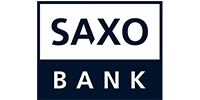
SAXO BANK
Saxo Bank is a well-established, low-risk broker based in Denmark that offers a wide range of trading services to sophisticated traders, institutions, and professional investors. It operates under strict regulatory oversight, ensuring a secure trading environment. The broker provides advanced trading platforms, including SaxoTraderPRO and SaxoTraderGO, catering to high-volume and professional traders with competitive spreads and access to over 71,000 instruments.
Why we chose Saxo Bank
For its comprehensive product range, spanning forex, commodities, indices, and popular CFDs. Such variety allows traders to build diversified portfolios within a single account. This breadth of markets supports evolving strategies and risk preferences.
| Broker Evaluation | 8.09 |
| Regulations | FCA |
| Minimum Deposit | $0 |
| Islamic Account | No |
| Payment Methods | Bank transfer, Credit Card |
| Main Branch | Copenhagen, Denmark |
| Customer Service | Market Opening Hours |
| Demo Account | Yes |
| Trading Platforms | SaxoTrader |
Pros
-
Extensive range of offerings.
-
Offers portfolio-based margin trading for pros.
-
Regulated by top regulators.
-
Excellent trading platforms.
-
Diverse account types.
-
Among the industry’s best research tools.
-
Offers protection for client accounts.
-
No inactivity fee.
-
No platform fees.
-
No minimum funding for entry-level accounts.
Cons
-
Some bonds, options, and futures fees are high.
-
With so many assets, fees can be confusing.
-
High minimum deposit for Platinum and VIP accounts.
-
Does not accept US clients.
-
No MT4 for traders who are used to the platform.
-
No GSLO.
-
No Islamic accounts.
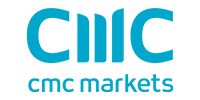
CMC MARKETS
CMC Markets is a global CFD and FOREX broker established in 1989. It is regulated by several authorities globally. The company delivers a formidable offering for traders thanks to excellent pricing, nearly 12,000 tradable instruments, and its proprietary Next Generation trading platform. The platform comes packed with quality research, innovative trading tools, and powerful charting. CMC provides traders with access to an extensive range of CFDs and spread betting across several asset classes.
Why we chose CMC Markets
This broker’s risk management tools and flexible order types stood out to us, enabling traders to tailor positions according to market conditions. Features like stop losses, take profits, and conditional orders provide strategic control. These tools are essential for disciplined trading.
| Broker Evaluation | 8.07 |
| Regulations | FCA |
| Minimum Deposit | 0$ |
| Islamic Account | No |
| Payment Methods | Bank transfer, Credit Card, Electronic Banks |
| Main Branch | United Kingdom |
| Customer Service | Market Opening Hours |
| Demo Account | Yes |
| Trading Platforms | Proprietary Platform, MT4, Web Platform |
Pros
-
Extensive range of offerings.
-
Regulated by the FCA (UK) and other top regulators.
-
Low FOREX fees.
-
Emphasis on education and customer service.
-
Great Web and mobile platforms.
-
Offers protection for client accounts.
-
Research amenities are industry leading.
Cons
-
Does not accept US clients.
-
High CFD spreads for certain indices.
-
It only offers CFD trading, so traders cannot own the underlying asset.
-
Does not support deposits and withdrawals through electronic payments.

think markets
ThinkMarkets is a multi-regulated broker with offices around the globe. The firm is primarily a CFD broker, allowing you to trade across 4,000 instruments in FOREX, futures, commodities, indices, ETFs, crypto, and stocks. With an emphasis on superior customer service, ThinkMarkets maintains round-the-clock support in several languages. It provides different trading accounts suited to individual traders' needs. This includes zero-commission accounts and access to trading guides, analysis tools, and industry news feeds.
Why we chose ThinkMarkets
We selected this broker for its fast and flexible funding options, including bank transfers and card payments. Smooth deposits and withdrawals reduce administrative delays and support efficient capital management. Accessibility of funds is an often-overlooked but essential feature.
| Broker Evaluation | 8.05 |
| Regulations | FCA |
| Minimum Deposit | $50 |
| Islamic Account | Yes |
| Payment Methods | Bank transfer - credit card - Electronic Banks - Crypto |
| Main Branch | Australia |
| Customer Service | Market Opening Hours |
| Demo Account | Yes |
| Trading Platforms | Proprietary Platform, Web Platform, MT4, MT5 |
Pros
-
Beginner assistance is offered through round-the-clock channels.
-
Spreads are as low as 0.0 pips.
-
Round-the-clock expert customer service.
-
CFD shares and indices come at no extra fee.
-
Zero broker fees for FOREX trading.
-
Technical analysis and quality market information.
Cons
-
No binary options are offered.
-
Commissions are charged for two account types.
-
Range of tradeable assets is not as wide as some competitors.
-
No US clients allowed.
There is a high degree of risk involved in trading securities like FOREX, or CFDs, which are highly complex instruments. As a trader, you could be exposed to excessive leverage, questionable broker tactics, market volatility, and limited regulatory protection. Despite your best trading techniques and risk management strategies, your efforts may not be profitable, and you could suffer losses.
The Foundations of Islamic Trading
There are a few key rules to follow if you are going to trade according to Islamic principles, but one rule stands out – it is forbidden for an Islamic trader to earn or pay interest.
Many regular traders take part in day trading, which sees them maintaining open positions for short periods, often a few hours or less. However, from time to time, some traders must keep their positions open for longer than 24 hours. In this case, it is accepted practice for traders to pay interest to the broker for this facility, otherwise known as a rollover fee. In Shariah finance, this customary practice is prohibited.
Interest payments incurred for keeping overnight positions open might be commonplace for regular traders, but for followers of the Islamic faith, they are a non-starter. This is where Islamic brokers come in, as they have developed accounts that comply with the requirements of halal (acceptable) Islamic trading while staying away from what is haram (not acceptable).
Many more rules must be followed for traders to remain in good standing with Shariah finance. We will cover these later in the article. However, it is crucial to note that receiving or paying interest is a cornerstone issue to navigate when a follower of the Islamic faith starts their trading career.
Is FOREX Trading Allowed for Islamic Traders?
The question of whether FOREX trading is acceptable or unacceptable within Shariah law generates much discussion, which is why it is worth underscoring the commonly accepted positions. Islam allows for the enhancement and improvement of one's personal situation, which means that seeking to improve one's financial situation through trading is acceptable.
According to the principles of Islamic finance, FOREX trading can be considered halal. However, although Islamic traders are not required to pay interest, they must pay the margin, commissions, and administrative fees like everyone else. Also, to compensate for losing out on swap fees, brokers usually widen the spreads between currency pairs, which benefits them but costs Islamic traders.
What Is an Islamic FOREX Account?
An Islamic FOREX account has been developed with the Islamic trader in mind. Paying close attention to the requirements of Islamic faith and the stipulations of the Quran, brokers ensure that none of the features of the account contravene the teachings of Islam.
As we have mentioned, rollover fees cannot be levied if an account is to be compliant with Shariah finance. Islamic accounts are often referred to as swap-free accounts. These accounts are different from normal accounts in several crucial ways.
Before we go on, let us delve deeper into why it is necessary to structure Islamic FOREX accounts in this way. In Islam, the concept of “hand-to-hand" trading relates to the ancient practice of completing transactions face to face, in one sitting, so that interest does not come into the equation.
However, with the evolution of commerce resulting in electronic transactions taking place across continents, scholars have indicated that hand-to-hand should be replaced by a modern equivalent, which equates to completing a transaction in the same session. Naturally, this poses challenges in the context of an overnight interest charge.
Shariah-compliant transactions in the FOREX world must ideally be conducted very quickly, so currencies can be transferred without delay, with all costs and fees settled at once, in a manner resembling hand-to-hand trading. However, it is not always the best strategy for Islamic traders to close their positions so rapidly, as they will often need to hold their positions open overnight to maximize their chances of making a profit.
To facilitate this, brokers make an exception to their rollover fee rule by creating a swap-free account option. This exemption makes all the difference because, without it, Muslim traders would not be able to take part in the FOREX trading world.
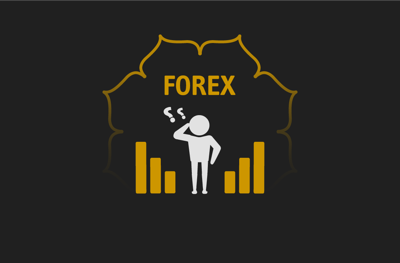
How to Open an Islamic FOREX Account
Opening an Islamic account is not much different to opening a regular account. You will need to submit all the relevant documentation, such as national identity documents and proof of income. Bear in mind that some brokers have been known to request a letter from a religious authority stating that you are a practicing Muslim to open your account. However, this is not standard practice.
Once your account has been approved, normally one to two days after you make the application, you will be able to fund your account by making the first deposit. After your account is funded, you can start to trade as you would with a normal account.
Many brokers also offer you the chance to practice on an Islamic demo account. It is a good idea to take advantage of this as you can practice your strategies in real market conditions without any of the risk. You will also start to get familiar with the ways in which pricing and fees work within an Islamic account.
What Is a Swap Fee?
This is one of the key terms you will encounter in Islamic FOREX trading. Whenever you leave your position open for more than 24 hours, you are required to pay interest for the privilege of this facility. This interest is called a swap fee or rollover fee. As we have discussed, the need to pay interest comes from the fact that the broker is effectively giving you a loan.
However, as interest payments are not allowed according to Shariah law, Muslim traders would be in an impossible situation if they wanted to actively trade FOREX. This is where the concept of the swap-free account originated.
Brokers have gone further by opening access to more instruments in Shariah-compliant ways. Besides FOREX, Islamic traders can invest in indices, commodities, and shares. Concerning share trading, you should note that, according to Shariah law, it is acceptable to buy shares as a stake in a company. However, it is haram to buy shares in a company that carries out activities against Shariah Law, such as gambling and/or alcohol production.
Two notable items that you cannot trade as an Islamic trader are bonds and treasury bills. Bonds are issued based on a fixed interest rate, the proceeds of which will be paid at the end of the life of the bond. This is haram. Similarly, futures contracts contravene Shariah law as the exchange of goods happens at a future date, violating the hand-to-hand principle.
Regulation and Licensing of Shariah-Compliant Brokers
There is no difference in how brokers are regulated when they offer Shariah finance products. Shariah-compliant FOREX brokers must be regulated by the same regulators that regulate non-Shariah brokers. Both these types of brokers can readily provide access to financial assets such as FOREX, commodities, and indices. If you want to learn more about some of the best-regarded regulators, read our article on regulation here. Remember that you do not have to use a broker with international regulation if your local broker is regulated by a solid local regulator.
To ensure that your broker is legit, you can follow these steps:
Ask the broker to explain its FOREX product, with specific emphasis on swap-fees
Check if the broker is registered with a top-tier regulator or at least the applicable regulator in your area
Ask how the broker plans to compensate you if it goes insolvent
Stay on top of your account and make sure all transactions are above board
Make sure your broker is regulated by a reputable authority. Not all brokers are regulated by tier-one regulators, but you can still rest easy if your broker works with the regulator in your area. To verify if your broker is registered with a regulator, navigate to the regulator’s official website.
Which Regulations Guide the Use of Leverage in Islam?
There is a healthy debate among Islamic scholars about the use of leverage. Some feel leverage trading can be permissible within limits if it complies with the principles of Islamic finance. However, other scholars argue that leverage trading is not permissible in Islam due to its association with excessive speculation and gambling, which is prohibited.
Consult an Islamic scholar or your broker directly for more information. On the matter of leverage in general, several key regulators have introduced specific guidelines to safeguard retail traders.
Let's look at some of these leverage rules set by major regulators:
Financial Conduct Authority (FCA) in the UK:
30:1 for major currency pairs
20:1 for non-major currency pairs, gold, and major indices
10:1 for commodities (excluding gold) and non-major equity indices
5:1 for individual equities and other reference values
Australian Securities and Investments Commission (ASIC) Australia:
30:1 for major currency pairs
20:1 for non-major currency pairs, gold, and major stock market indices
10:1 for commodities other than gold and minor stock market indices
5:1 for equities (stocks) and other underlying assets
The Cyprus Securities and Exchange Commission (CySEC) in Cyprus:
CySEC regulations fall closely in line with the European Securities and Markets Authority (ESMA) guidelines and the Markets in Financial Instruments Regulation (MiFIR).
30:1 for major currency pairs
20:1 for non-major currency pairs
10:1 for major indices, such as the S&P 500
5:1 for equities (stocks) and other underlying assets
High leverage can amplify potential profits, but it equally magnifies potential losses. It can put a stop to your trading career if not used carefully. The allure of high returns is tempting, but the risk associated with such strategies is highly dangerous. We strongly urge traders to approach leverage with caution, fully grasping its mechanics and implications.
What are Competitive Commissions and Fees at the Best Islamic Brokers?
Trading fees can be tricky to keep track of, so it's important to compare them with industry standards. Here are some fees of which to be aware:
Spreads:
There are two main kinds of spread, one is fixed and the other is variable. A first step in FOREX trading is identifying the spread differential, defined as the difference between the bid (sell) price and the ask (buy) price of a currency pair. While most FOREX currency pairs are traded without commission, the spread is one “cost” that applies to any trade that you place. This is, indeed, the biggest source of profit for the FOREX company.
The spread refers to the difference between two prices, such as the bid/ask rate in a currency exchange rate. An example of a good spread is 1.4 pips for the EUR/USD (the narrower the better, this means that a spread of 1.4 pips is better than a spread of 2 pips). You can learn more about this concept in this article.
Remember that because brokers catering to Islamic clients cannot charge rollover fees as it is against Shariah law, they often seek to make more money through spreads, which are typically higher in markets bound by Islamic law.
Commission:
This is the service charge that brokers require for carrying out transactions on behalf of their clients. As for commissions, FOREX trading companies can be placed into three categories. The first offers fixed spreads, while the second tenders variable spreads, with a third category of companies offering low-cost spreads, but that comes with a (relatively high) fixed commission.
Rollover fees: When you leave a trade open overnight, the broker normally charges a rollover fee for the facility of holding your trade open for that period. This is because they assume the risk of the market changing adversely. As we have said, you should know that as a Muslim trader, it is haram to pay conventional rollover fees. This is why you should only trade with a broker that offers Islamic swap-free trading.
Withdrawal and deposit fees:
Some platforms might charge fees for depositing or withdrawing funds. Pay attention to this. It's important to know these and any associated limits or conditions.
Subscription or inactivity fees:
Certain platforms have monthly charges or fees for inactive accounts. Ensure you're aware of these potential costs.
Withdrawal and Deposit Fees Comparison Table
Our pricing review draws on Arincen’s independent research, where we analysed broker cost structures using both advertized rates and real-world trading data. By comparing spreads, commissions, and related fees, we aimed to reflect what traders are likely to experience. The outcome of this assessment is displayed in the table below.







| Method | Credit Card | Wire Transfer | Skrill | Neteller | Cryptocurrency | PayPal |
| Deposit fee | 0$ | $0 + Bank commission | 1.9% | 2.5% | Unavailable | 3.75% |
| Withdrawal fee | 0$ | $15 | 1% | $0 | Unavailable | 2% |
What Assets and Instruments Do Islamic FOREX Brokers Offer?
Retail trading offers a diverse range of financial instruments, each with its own set of opportunities and challenges. Here are the most common tradable assets and instruments. Be sure to check that your broker provides Shariah-compliant trading accounts to trade these financial assets:
FOREX
With the largest trading volume globally, the FOREX market allows traders to speculate on the future movements of currency prices, trading pairs like EUR/USD, GBP/JPY and many more.
Commodities
Whether it's precious metals like gold and silver, or energy commodities like oil and natural gas, commodities trading offers a chance to profit from the tangible assets that drive global economies. Be sure to check first as to which ones are Shariah-compliant first.
CFDs
CFD trading is haram because you are not taking an active stake in a transaction, as demanded under Islamic finance law. CFD trading allows you to speculate on the rising or falling prices of fast-moving global financial markets, such as shares, indices, commodities, currencies, and treasuries. You don’t own the underlying asset, which makes it unsuitable for Muslim traders. Also note that bonds, options, and futures also involve an interest payout at a future date, making them haram.
Equities or Stocks
These represent ownership in a company and constitute one of the most popular avenues for retail traders, given their potential for substantial returns and the thrill of being a part of the corporate world. Remember you cannot, by Islamic finance laws, invest in companies that deal in gambling or alcohol.
Indices
These are baskets of stocks representing a particular market or sector, like the S&P 500 or the Nasdaq, giving traders exposure to broader market movements.
As part of our evaluation process, the Arincen team gathered and cross-checked broker pricing from official documentation and live trading environments. This approach allowed us to compare spreads, commissions, and fees under actual market conditions. The breakdown of our findings is presented in the table that follows.
| Brokers | Currency pairs | Stocks | Indices | Commodities | Crypto | ETFs |
| Tradview | 80 Pairs | 5000 Shares | 10 Indices | 10 Commodity | 30 Coins | Unavailable |
| ICM Capital | 67 Pairs | 89 Shares | 17 Indices | 12 Commodity | 6 Coins | Unavailable |
| XTB | 57 Pairs | 1848 Shares | 36 Indices | 22 Commodity | 22 Coins | 135 ETFs |
| IG | 81 Pairs | 21714 Shares | 49 Indices | 39 Commodity | 11 Coins | 12858 ETFs |
| Saxo Bank | 320 Pairs | 22000 Shares | 49 Indices | 39 Commodity | 9 Coins | 6700 ETFs |
| CMC Markets | 330 Pairs | 8000 Shares | 80 Indices | 100 Commodity | 18 Coins | 200 ETFs |
| Think Markets | 46 Pairs | 3750 Shares | 15 Indices | 11 Commodity | 21 Coins | 350 ETFs |
What Trading Platforms, Tools and Features Should Islamic Broker Offer?
When choosing a trading platform, you should consider a range of features that cater to both novice and seasoned traders. Here are some elements to keep in mind:
Shariah-compliant accounts: You should be able to access a swap-free account consistent with Islamic financial law's dictates.
Technical analysis tools: The platform should have robust technical indicators to help traders make informed decisions.
Customization and user interface: Traders should be able to mold the platform according to their preferences, allowing them to set up their trading environment precisely how they want. We find that the products from the MetaTrader suite, especially MT4, offer excellent features for this purpose.
Platform accessibility: A top-notch trading platform should offer flexibility in terms of access, whether it's web-based or a downloadable application.
Risk-management tools: Trading inherently comes with risks, and a high-quality platform should provide instruments that allow traders to set stop-losses, take-profits, and other crucial risk management guardrails.
Performance and reliability: Beginner traders especially need a platform that operates seamlessly with minimal downtimes or glitches. This ensures a smooth trading journey, allowing them to focus on market movements rather than technical hiccups.
Learning and educational resources: The best brokers will offer platforms that are not only intuitive but also come with tutorials, guides, and responsive customer support to assist traders in navigating any challenges they might face.
To choose the perfect trading platform, here’s some solid advice:
Determine your trading style and needs.
Research different platforms and compare their features.
Test the platforms with a demo account to see which one suits you best.
Choose a platform that offers the features you need and is user-friendly.
Ensure that the platform is reliable and has a good reputation in the industry.
Remember that the trading platform you choose can have a significant impact on your trading success, so it's important to choose wisely.
Tip for those who have no experience
Every successful trader begins with a solid foundation in education and research. We've meticulously curated a suite of resources for you. Dive into our comprehensive articles to grasp the basics, watch our videos to learn from industry experts, and stay updated with our newsfeed. Moreover, our expert signals and sophisticated analytics are at your fingertips to guide your every decision.
How Do Stop Outs Affect You As a Trader?
Stop outs are bad news. It is one of the worst things that can happen to a retail FOREX trader. If this happens to you, rest assured that you have not planned your trading activities well. Different regulators have different guiding policies relative to leverage. Key regulators have implemented specific rules to limit the leverage offered to retail traders as a means of consumer protection.
Here are selected leverage rules for CFDs according to some key regulators:
Stop out of 0%:
Your broker won't close any of your positions, even if your margin level reaches rock bottom. This is because some brokers allow you to end up in the red, which means you might owe them money if your trades keep losing.
Stop out of 50%:
Once your equity dwindles to half of your used margin, the stop-out alarm goes off. Your broker steps in and starts closing your trades, beginning with those least profitable. This continues until your margin level bounces back above the stop-out level.
Stop out of 100%:
When your margin level hits 100%, your broker takes the drastic step of automatically closing all your open positions. In some setups where the broker separates margin-call and stop-out levels, the margin call happens at 100% and the stop out at 50%. If your margin level plunges to 50%, your trading platform springs into action with a stop out, closing your trade at the market price.
It's worth noting that while stop-out procedures are meant to protect traders from negative balances, they can lead to significant losses in volatile markets if positions are closed automatically, especially if the market quickly reverses after the stop out. As such, using protective measures, like stop-loss orders and not over-leveraging, is always a good idea.
Important Matters to Note as an Islamic Trader
So, what do Islamic traders have to consider when they begin their trading career? The following are the four main Islamic trading principles:
You cannot pay or receive interest.
Transactions must be completed as quickly as possible.
Gambling is not allowed.
The risks and benefits of a transaction must be shared between the two parties.
Conventional banking in the Western model does not easily support these principles. This explains the need for Islamic trading, a special type of trading that respects the dictates of Shariah Law as they relate to finance. Here are some of the practical considerations that arise when employing specific trading approaches.
1. Day Trading
Day trading consists of working a strategy that requires you to open and close positions during the same session. In this instance, there are no swap or rollover fees to be paid. As you can see, day trading does not contravene Sharia law as no interest is paid or earned. So, what is the point of having an Islamic account for day trading?
It is fair to say that if a Muslim trader can stick to day trading without ever rolling over trades into the next day, then they can use a regular account to perform day trading. If a trader believes they might be tempted to hold trades open the next day, then it is a good idea to work through an Islamic account. This will ensure that they remain compliant according to Islamic principles for the times they hold trades open longer than a day.
2. Scalping
Scalping involves opening a position to close it very quickly. Scalping trades can be opened and closed within a few minutes. Traders who scalp do so to open several small positions and make a tiny profit from each. As the transaction window for scalping is so small, there is no interest to be paid, making this form of trading acceptable in Shariah finance.
Normally, Islamic scalpers can use standard accounts that do not need the special facilities of an Islamic account. In the same way as normal trading, if a scalper goes on a roll and wishes to keep their positions open, then at that point they would need an Islamic account.
3. Swing Trading
Swing trading involves keeping positions open for days or weeks. As we have mentioned, any trading style that involves a position remaining open overnight is destined to attract interest, and this makes it against Shariah finance. Therefore, swing trading must be conducted free of interest payments.
As a Muslim trader, if your strategy revolves around swing trading, you must work through an Islamic account. What about Islamic traders who employ a combination of strategies? Some brokers will allow traders to hold regular accounts and Islamic accounts at once. It takes some research to find out who these brokers are, and it takes practice to understand how workable it really is to alternate between account types.
How to Select the Best Islamic Brokers 2026
The number of Islamic traders is increasing all the time. This has driven growth in the base of Islamic brokers from which to choose. From what we have discussed in this article, there are many elements to consider when comparing Islamic brokers. Here are some important questions you can ask of a broker as you think about working with them:
Is the account-opening process comfortable and quick?
Are the fees, especially spreads, acceptable?
Is it better to go with an ECN or standard account?
Do I have the same level of functionality as regular accounts?
Can I alternate between regular and Islamic accounts?
Is there a demo Islamic account facility?
Are there educational materials to teach me how to keep my activities halal?
Has the broker created communities of Islamic traders like me?
Traders are advised to check that their broker can handle the basics of trading before asking if they can handle the unique requirements of Islamic trading.
Conclusion
Forex Risk Disclaimer
Trading foreign exchange on margin carries a high level of risk, and may not be suitable for all investors. The high degree of leverage can work against you as well as for you. Before deciding to trade foreign exchange you should carefully consider your investment objectives, level of experience, and risk appetite. The possibility exists that you could sustain a loss of some or all of your initial investment and therefore you should not invest money that you cannot afford to lose. You should be aware of all the risks associated with foreign exchange trading, and seek advice from an independent financial advisor if you have any doubts.
FAQ
Each country is different. Many Islamic FOREX traders reside in Gulf nations such as the UAE which is a tax-free zone. If this is you, your earnings will not be taxed. However, other countries such as Malaysia and India have Muslim populations of varying sizes, and they may tax FOREX earnings. It’s important to contact a tax expert in your area to find out where you stand on this.
One of the main advantages of Islamic accounts is that they give market access to Islamic traders who would otherwise not have been able to take part in this thriving global marketplace. The next big advantage is that there are no swap fees on Islamic accounts. This way, you can open long-term positions while not violating the hand-to-hand principle.
When traders short positions, they receive positive interest payments when they make profits. Muslim traders do not have the benefit of earning interest from shorting strategies. Also, when broker interest fees are removed, many brokers either make up for this through flat admin fees or by increasing the spreads on FOREX pairs, often to the detriment of Islamic traders.
Purchasing currencies and profiting from the exchange of currencies is acceptable under Sharia finance. In the pursuit of improving their financial position, traders can pursue strategies like FOREX trading. However, they must never pay or receive interest.
Yes. Many brokers do not permit Islamic traders to buy selected exotic accounts such as the Turkish lira or the Mexican peso. This is not an exhaustive list, so you are advised to check with your broker. The reason for banning some exotic currencies is because these countries frequently have financial systems featuring high interest rates. It is, therefore, haram for traders to be “associated” with these currencies.
No, this type of trade is not allowed. When you buy a contract for difference (CFD), you are not buying a product or the underlying asset of a type of instrument. You are trying to predict how the price will develop in the future so that you can benefit from making the right prediction. This is not acceptable according to Sharia finance because you are not taking an equal share in the risk of the transaction.
